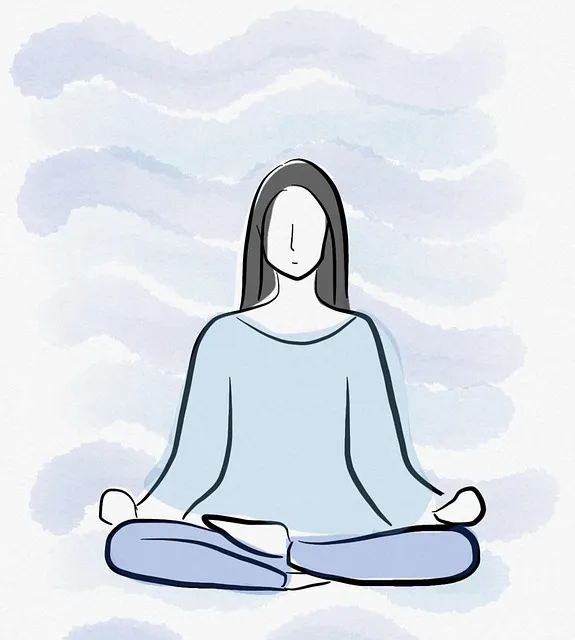Englewood Kaiser Permanente psychiatry focuses on swift and comprehensive crisis intervention, combining immediate assistance with long-term resilience building. Their holistic approach prioritizes risk assessment, evidence-based strategies like depression prevention, self-awareness exercises, and mental wellness journaling. Post-crisis care includes tailored programs for coping skills, stress management, trauma-informed care, and community outreach, ensuring sustainable healing and preventing burnout. They emphasize trust, safety, active listening, empathy, and non-judgmental attitudes throughout the process.
“At Englewood Kaiser Permanente Psychiatry, crisis intervention strategies are a cornerstone of patient care. This comprehensive guide explores effective approaches to managing crises, focusing on understanding the nuances of such interventions. We delve into assessing triggers, employing evidence-based tactics for support, and enhancing communication to build trust. Additionally, it highlights post-crisis care techniques aimed at fostering resilience and long-term mental wellbeing. Learn how Englewood Kaiser Permanente Psychiatry offers expert guidance in these critical areas.”
- Understanding Crisis Intervention at Englewood Kaiser Permanente Psychiatry
- Assessing the Situation: Identifying Signs and Triggers
- Evidence-Based Strategies for Effective Support
- Communication Techniques to Build Trust and Safety
- Post-Crisis Care: Fostering Resilience and Long-Term Wellbeing
Understanding Crisis Intervention at Englewood Kaiser Permanente Psychiatry

At Englewood Kaiser Permanente Psychiatry, crisis intervention is viewed as a critical component of mental health care. It involves swift and effective strategies to support individuals facing acute emotional distress or mental health crises. The approach emphasizes immediate assistance while also focusing on building long-term resilience and coping mechanisms. Mental health professionals here are trained in various techniques to help patients navigate turbulent situations, including Self-Awareness Exercises that enable them to recognize triggers and manage their responses.
This holistic strategy not only addresses the present crisis but also equips individuals with the Inner Strength Development needed to prevent future episodes. Risk Management Planning is another key aspect, ensuring professionals are prepared to handle high-risk situations while prioritizing patient safety and well-being. Through these comprehensive interventions, Englewood Kaiser Permanente Psychiatry strives to provide tailored support that fosters recovery and enhances overall mental health.
Assessing the Situation: Identifying Signs and Triggers

In the event of a crisis, the first step for mental health professionals at Englewood Kaiser Permanente psychiatry is a thorough assessment of the situation. This involves identifying both overt and subtle signs that an individual may be in distress. Such signs can include sudden changes in behavior, communication patterns, or physical well-being, as well as explicit expressions of suicidal ideation or homicidal intent. Understanding the triggers that have led to this point is equally crucial; these could range from acute stressors like interpersonal conflicts to chronic issues such as undiagnosed mental health disorders or ongoing trauma.
Mental health professionals play a vital role in recognizing these cues and implementing initial crisis intervention strategies, which can often be life-saving. They must remain empathetic and non-judgmental while gathering essential information to facilitate a comprehensive risk assessment. This process is a cornerstone of effective crisis intervention guidance, ensuring that the appropriate support and resources are mobilized to address the individual’s needs promptly and compassionately.
Evidence-Based Strategies for Effective Support

Englewood Kaiser Permanente psychiatry emphasizes evidence-based strategies for crisis intervention, ensuring a structured and effective approach to supporting individuals in distress. These strategies are designed to be tailored to each person’s unique needs, promoting long-term mental wellness. One such strategy is Depression Prevention, which focuses on early identification and intervention to mitigate the risk factors associated with depressive disorders. By integrating evidence-based practices, professionals can empower individuals with tools for self-management and resilience.
In addition, Mental Wellness Journaling Exercise Guidance has proven to be a valuable tool in fostering self-awareness and emotional regulation. Encouraging individuals to reflect on their thoughts, feelings, and experiences through journaling can help them identify patterns, process emotions effectively, and promote positive mental health. Self-Awareness Exercises, when incorporated into crisis intervention, enable people to gain insights into their triggers, coping mechanisms, and personal strengths, thereby enhancing their ability to navigate future challenges.
Communication Techniques to Build Trust and Safety

In crisis intervention settings, establishing trust and creating a safe environment is paramount to effective communication. The approach at Englewood Kaiser Permanente psychiatry emphasizes active listening, empathy, and non-judgmental attitudes as key elements. Mental Health Policy Analysis and Advocacy highlights that professionals should validate the individual’s feelings and experiences, fostering an atmosphere where individuals feel heard and understood. This technique not only encourages openness but also helps to de-escalate intense emotions, making it easier to explore solutions together.
Encouraging positive thinking is another vital aspect. Burnout Prevention strategies suggest incorporating techniques like reframing negative thoughts into more optimistic perspectives can help individuals regain a sense of control and resilience during crises. By combining these communication methods, Englewood Kaiser Permanente psychiatry aims to empower individuals to navigate challenging situations with enhanced coping mechanisms and improved mental well-being.
Post-Crisis Care: Fostering Resilience and Long-Term Wellbeing

Post-crisis care is a vital component of effective crisis intervention strategies. Following an acute episode, individuals often require ongoing support to build resilience and promote long-term wellbeing. At Englewood Kaiser Permanente psychiatry, our team recognizes that recovery is not a linear process and tailored interventions are needed to address unique challenges. We design mental health education programs focused on coping skills, stress management, and trauma-informed care to empower individuals with the tools necessary for sustainable healing.
Integrating community outreach program implementation, we foster connections and enhance accessibility to resources. By addressing burnout prevention through regular check-ins, skill-building workshops, and peer support groups, we ensure that individuals stay on a path toward resilience. Our holistic approach prioritizes both the mind and body, acknowledging that mental health is intrinsically linked to overall wellbeing.
Englewood Kaiser Permanente Psychiatry’s crisis intervention strategies offer a comprehensive framework for supporting individuals in distress. By understanding the signs, assessing triggers, and employing evidence-based techniques, healthcare professionals can build trust and promote safety during critical moments. Effective communication is key to fostering resilience and long-term wellbeing, ensuring that those facing crises receive holistic care tailored to their unique needs. This guidance serves as a valuable resource for both mental health professionals and Englewood Kaiser Permanente Psychiatry’s dedicated team.






